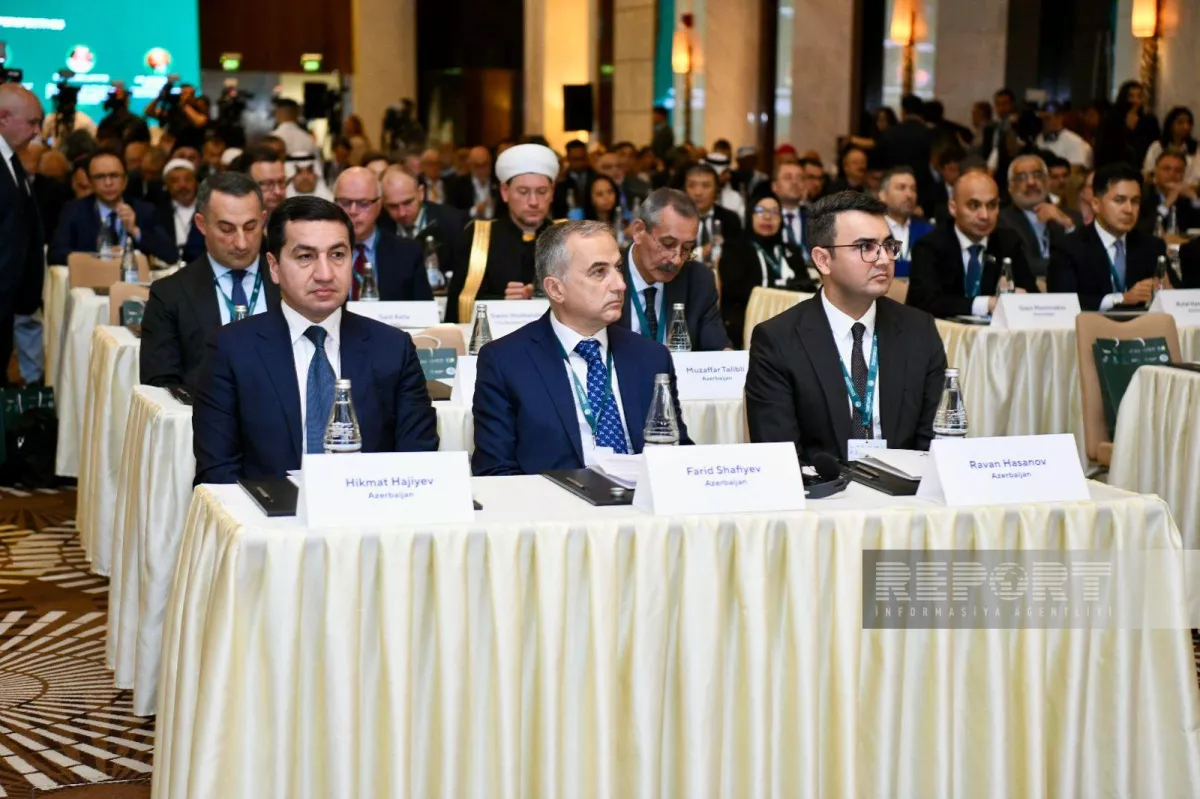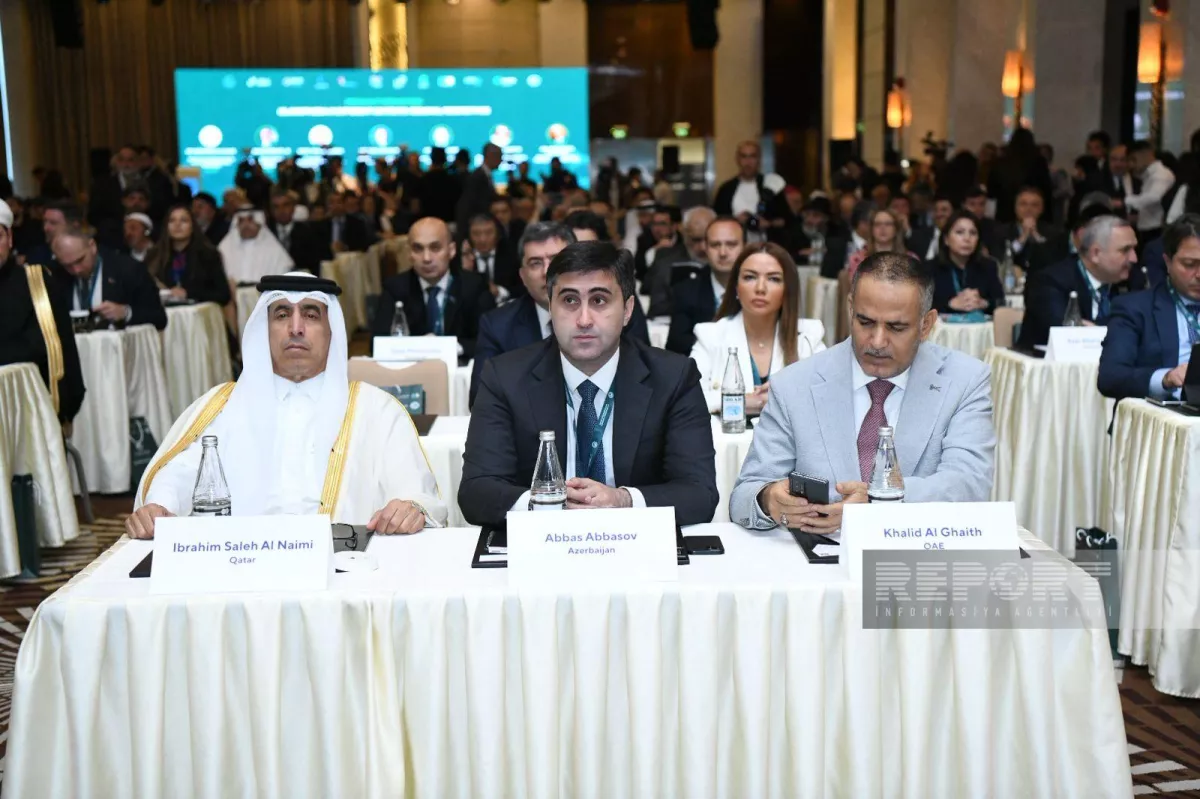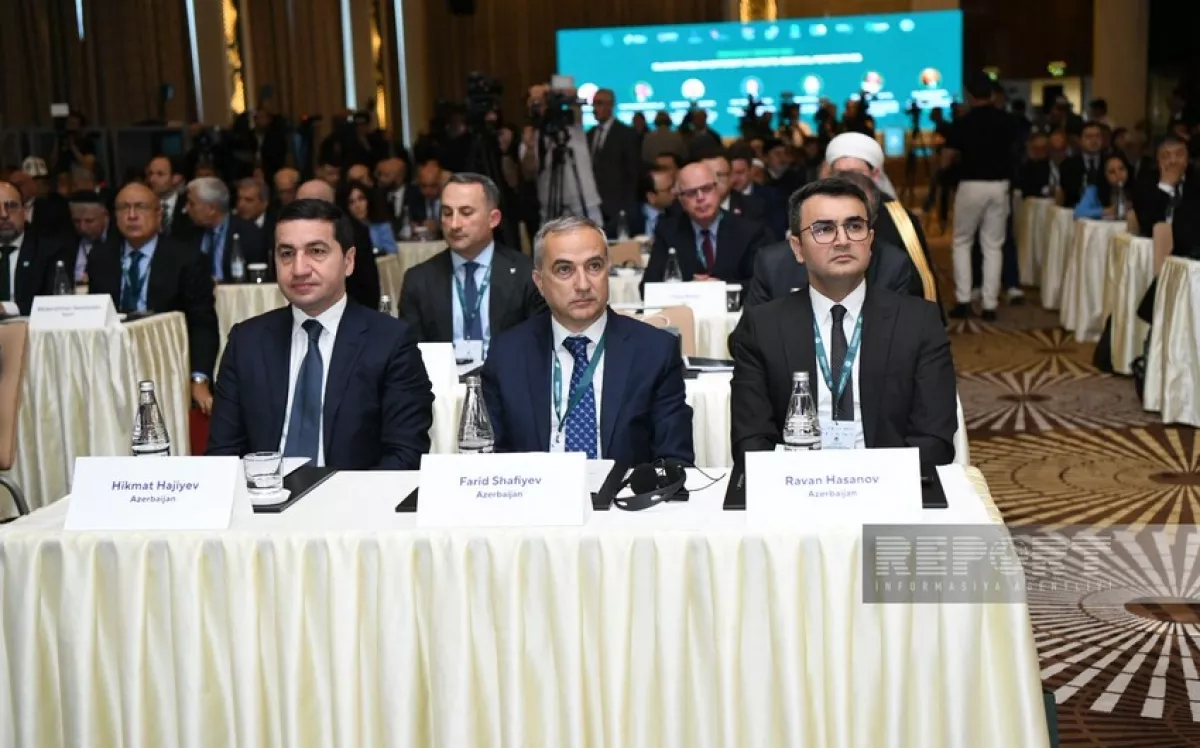President Aliyev condemns global rise of Islamophobia as threat to humanity at Baku conference Updated / Photo
Ilham Aliyev, President of Azerbaijan, addressed participants at the International Conference titled “Islamophobia in Focus: Unveiling Bias, Shattering Stigmas”, held in Baku to mark the third anniversary of the United Nations’ International Day to Combat Islamophobia.
Opening the event, Aliyev emphasised the significance of the conference as a platform to raise awareness about Islamophobia, describing it as “an issue that concerns all of humanity,” Caliber.Az reports, citing the Presidential Press Service.
“Azerbaijan welcomes the resolutions on combating Islamophobia adopted by the UN General Assembly and calls for the immediate implementation of all measures envisaged in those documents,” Aliyev said.
Highlighting the global rise of Islamophobia, the President warned that “hostility towards Islam, hatred and intolerance against Muslims, and anti-Islamic sentiment are becoming increasingly widespread and severe.” He noted that Islamophobia manifests in many forms, including “everyday racism and discrimination, hate speech, physical attacks, stigmatisation in the media and on social media platforms, institutional bias, and other expressions of intolerance.”
Aliyev criticised certain countries where Islamophobia, he argued, “has, in effect, become a state policy,” pointing to restrictions on Muslims’ rights under the pretext of defending secular values. He condemned acts such as “insulting the Prophet Muhammad (Peace Be Upon Him), the burning of the Holy Qur’an, attacks on mosques and other places of worship,” and said these “are clearly aimed at offending the sentiments of Muslims.”
The President also denounced political forces that “seek to win the hearts and minds of the people by portraying Islam and Muslims as a threat to Western values and identity,” accusing some European institutions of contributing to “the spread of anti-Muslim sentiment.”
Aliyev further criticised media outlets that “deliberately equate Islam with extremism, terrorism, and similar concepts,” which he said “promote a biased perception of our religion, portraying it as a source of threat.”
Turning to Azerbaijan’s own experience, Aliyev recounted the 30-year occupation of Azerbaijani lands, including the Khojaly genocide and ethnic cleansing, describing these as acts driven by “pure religious bigotry and Islamophobia.” He lamented the destruction and desecration of Islamic sites during the occupation and highlighted ongoing efforts to restore mosques and religious heritage in recently liberated territories.
“The decision to restore the Irevan Qadi Council… was an important step toward restoring historical justice and conveying the truth to the international community about the destruction of our cultural, religious, and moral heritage,” Aliyev said.
Stressing the importance of multicultural coexistence, Aliyev portrayed Azerbaijan as “a role model for many countries” where diverse faiths and cultures have lived in “an atmosphere of brotherhood and friendship.”
“Islam is a religion of peace, solidarity, and mercy,” he affirmed, urging Muslim nations to unite in solidarity to combat Islamophobia. “We must stand as a unified front in combating Islamophobia, which afflicts the entire Muslim world, and raise our voices in protest against this injustice and these harmful trends.”
Aliyev concluded by expressing confidence in the conference’s contribution to “fighting Islamophobia, unveiling bias and shattering stigmas surrounding Islam.”
The conference continues with representatives from numerous countries discussing measures to tackle Islamophobia globally.
10:12
An international academic conference entitled “Islamophobia in Focus: Unveiling Bias, Shattering Stigmas” has commenced in Baku, the capital of Azerbaijan.
The event, organised by the Baku International Centre for Multiculturalism alongside the Centre for Analysis of International Relations, marks the third anniversary of the International Day to Combat Islamophobia, Caliber.Az reports per local media.
Over the course of two days, experts, academics, and officials will explore the global, historical, and political factors that have contributed to the rise and spread of Islamophobia worldwide.
It is reported that, over the past two years, the Baku Centre for Multiculturalism and the Centre for Analysis of International Relations, in partnership with the G20 Interfaith Forum, have held multiple international conferences aimed at addressing and countering Islamophobia in all its forms.
The International Day to Combat Islamophobia, observed annually on March 15, was first declared by the Organisation of Islamic Cooperation’s Council of Foreign Ministers during their meeting in Niamey, Niger, on November 27–28, 2020. The United Nations General Assembly formally adopted the day in 2022.
By Aghakazim Guliyev











